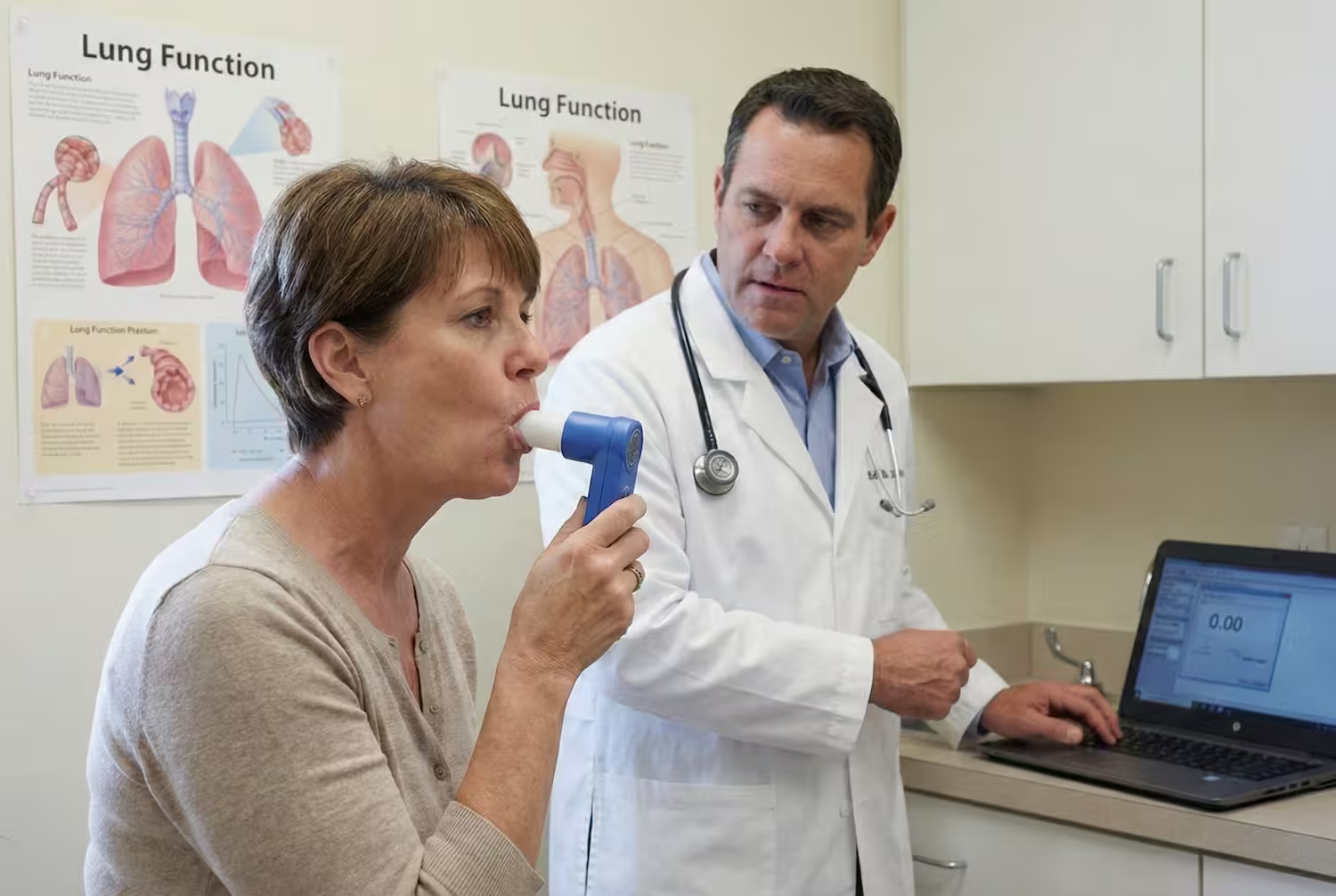
The heart is constantly beating to keep blood circulating throughout your body. Every heartbeat is a coordinated contraction of the heart muscle that maximizes the efficiency of cardiac output — but sometimes, these heartbeats can experience some dysfunction.
When the heart beats out of sync, it can cause the sensation of heart palpitations, reduce the effectiveness per stroke, cause an elevation in heart rate, and increase your risk factors for life-threatening conditions like stroke, heart disease, and heart failure.
What Is a Heart Flutter?
A heart flutter is a condition in which the heart beats in an abnormal heart rhythm. Typically a heart flutter refers to an atrial flutter (AF), an arrhythmia that impacts the timing of the contraction of the upper chambers of the heart, known as the atria.
Atrial flutter causes an increase in the rate of contraction in the upper chambers of the heart. Over time, this can lead to the development of further arrhythmias like atrial fibrillation (AFib) and heart failure.
What Causes a Heart Flutter?
The main cause of heart flutter has to do with the transmission of electrical impulses across the heart. There are two neural nodes in the heart: the sinoatrial node (SA node) and the atrioventricular node (AV node).
The SA node directs the contraction of the upper chambers of the heart, which helps move blood into the lower chambers, known as the ventricles. The SA node is commonly referred to as the pacemaker of the heart, as it helps regulate your pulse rate.
Individuals with heart flutter have abnormal conduction of the SA node, which causes the upper chambers to contract rapidly rather than having a controlled contraction that completely empties the atria.
One of the main causes of atrial flutter is the reentry of the nerve impulse back into the SA circuit in the right atrium, causing a cyclical flow of nerve impulses. The unusually fast beating of the atria can lead to a faster heartbeat, which can eventually cause tachycardia.
Some medical conditions that can cause atrial flutter include an overactive thyroid, high blood pressure (hypertension), coronary artery disease, heart valve disorders, and congenital heart issues. You can also be at a higher risk of developing atrial flutter if you are obese or have other heart issues, a history of lung disease, or a history of substance abuse.
What Are the Symptoms of a Heart Flutter?
Atrial flutter has a direct impact on the ability of the heart to pump blood effectively. The reduced efficiency of the heart can impact the heart itself, the lungs, and the perfusion of tissues throughout your body.
Some of the common side effects come as a direct result of reduced cardiac efficiency. Common symptoms include:
- A racing heartbeat
- Heart palpitations
- Fatigue
- Shortness of breath
- Lightheadedness
- Chest pain (also known as angina)
While these symptoms of atrial flutter are common, there are also a number of people that have atrial flutter but do not experience any of these abnormalities.
If you have any risk factors, experience any symptoms, or have a family history of atrial flutter, you may want to get an electrocardiogram (EKG or ECG). This test provides a visual of electrical activity that, when compared to a normal sinus heart rhythm, can help providers diagnose arrhythmias like atrial flutter.
Is a Heart Flutter Always Serious?
Atrial flutter directly impacts the efficiency of the heart and its ability to move blood. Heart flutter is not typically dangerous at first, but over time, it can greatly increase your risk of a cardiovascular event like stroke or heart attack.
Atrial flutter and atrial fibrillation reduce the efficiency of the upper chambers of the heart. The fast twitching movements caused by atrial flutter can cause blood to stagnate in the heart, promoting blood clot formation.
These blood clots can become dislodged from the upper chamber, travel out through the lower chamber, and travel through the cardiovascular system until they get stuck in arteries. When a blood clot gets stuck, it can block blood flow to the tissue, leading to tissue death.
If a clot is thrown into the blood supply of the brain or heart, it could be fatal without timely treatment.
Atrial arrhythmia can increase the risk of stroke, which is why it is important to seek treatment for these conditions. While atrial flutter itself is not life-threatening, leaving it unmanaged can be.
Can a Heart Flutter Go Away By Itself?
Atrial flutter and its presentation can differ from person to person. For some, heart flutters may be transient in nature, while for others, they can be persistent. If you experience symptoms of an arrhythmia, regardless of how persistent or infrequent they may be, it is a good idea to seek medical advice.
When Should You See a Doctor About a Heart Flutter?
Any time you suspect that you may have an arrhythmia, it is generally best to get checked out. Diagnosing certain heart arrhythmias can be rather time intensive, and you may need to wear remote monitoring equipment such as a Holter monitor for a cardiologist to see the arrhythmia.
Here are some warning signs that you should not ignore.
Chest Pain or Discomfort
Chest pain and discomfort can be important indicators that something is wrong with the heart. Chest pain and discomfort are one of the primary symptoms associated with a myocardial infarction, better known as a heart attack. However, they may also occur as a result of an arrhythmia.
If you experience sudden chest pain, it is important that you seek medical attention as soon as possible. If the pain is caused by a heart attack, it will most likely require the timely administration of medication and potential surgical intervention to avoid heart muscle death.
Persistent Fluttering Heart
Heart palpitations are quite common and can cause the heart to feel like it is fluttering, skipping a beat, or beating abnormally. Experiencing heart palpitations once in a blue moon is nothing to be too concerned about, but if it happens on a more consistent basis, it may indicate that you have an arrhythmia like AFib or atrial flutter.
Dizziness
Dizziness and lightheadedness are other good indicators that you should see a doctor. When you have an arrhythmia, it reduces the efficiency of blood flow through the body, which can leave tissues with less oxygen. If the brain does not receive oxygen as a result of a heart arrhythmia, you may experience lightheadedness and dizziness.

How Is a Heart Flutter Treated?
A heart flutter can increase your risk of developing more severe health complications, so what can be done about it? Below is a closer look at some of the ways in which atrial flutter can be addressed to help you reduce your risk factors and live a healthy life.
Surgery
One of the most common techniques utilized to treat atrial flutter is a surgical technique known as cardiac catheter ablation. The heart surgery technique utilizes a catheter that is inserted into an artery and positioned in the heart. Once in the heart, the device destroys the tissue responsible for the cyclical transmission of nerve impulses in the atria.
Medication
Using medications can also help with some types of arrhythmias. Many physicians will prescribe a beta-blocker, which can help to reduce the frequency of arrhythmias and help to slow a fast heartbeat.
Anticoagulants may also be prescribed to lower the risk of a thrombolitic event by reducing the chances of clot formation.
Lifestyle Changes
Improving your standard of cardiovascular health can be another means of managing heart conditions like atrial flutter. Many cardiologists will refer patients to a cardiac rehabilitation program which can help to support patients in making positive lifestyle modifications to live a more heart-healthy life.
Carda Health is a cardiac rehab provider that offers its services virtually without compromise. If eligible, you will be paired with an exercise physiologist and sent remote monitoring equipment.
Your exercise physiologist can create a tailored exercise program that fits your unique circumstance, as well as support you in making heart-healthy habits and monitor your vitals remotely as you perform exercises.
The Bottom Line
A heart flutter can feel concerning, but with proper treatment and lifestyle changes, a heart flutter can be managed effectively. If you feel that you may have a heart arrhythmia, go see your doctor for evaluation. If your doctor thinks an exercise-based approach may be helpful, consider using Carda Health for cardiac rehab.
Sources:
The Atrial Flutter Reentrant Circuit | Circulation
What are the Symptoms of Atrial Fibrillation (AFib or AF)? | American Heart Association
Stratifying Stroke Risk in Atrial Fibrillation | American Heart Association







